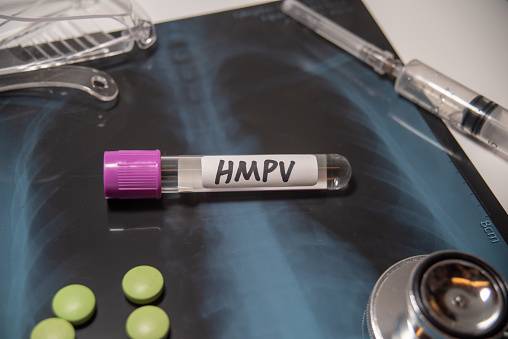
The National Institute for Communicable Diseases (NICD) has called for calm as news about the human metapneumovirus (HMPV) circulates.
In a statement issued on Thursday afternoon, the NICD said that there was no need to panic about the reported cases of HMPV.
The virus is “commonly occurring”, causes respiratory illness, and is in the same family of viruses as the respiratory syncytial virus (RSV).
“HMPV is detected all year round in South Africa as one of the regular seasonal respiratory viruses,” the NICD said.
According to the NICD, the virus is transmitted through respiratory droplets, much like RSV and influenza.
HMPV is mostly associated with mild upper respiratory tract symptoms such as cough, sore throat, runny nose, headache, and possibly a fever. In most cases, these symptoms resolve within a few days, the NICD said.
In some instances, HMPV may also cause infection in the lower respiratory tract (bronchitis/bronchiolitis or pneumonia).
HMPV is typically detected less commonly among patients presenting for care with respiratory illness compared to influenza or RSV, but this can vary depending on the time of year.
Those at increased risk of developing severe illness from the virus are infants who are under six months of age (specifically those who are born prematurely), older people, people with comorbidities such as chronic lung and heart disease, those with conditions that affect the immune system (such as HIV), and people with diabetes.
As with most respiratory viral illnesses, there is no specific treatment for HMPV.
Treatment of mild illness would include symptomatic relief (rest, medicines for pain and fever). People should also remain at home while ill to prevent the spread of respiratory viruses (the same advice is given for influenza).
Should symptoms not resolve within three to five days or become severe, people should seek care at a clinic or general practitioner.
More severe illnesses would be managed supportively with admission to the hospital for monitoring, supplementary oxygen, and fluids as needed.
The NICD confirmed that vaccines for HMPV are in the late stages of development. There is also a combination vaccine (for HMPV and RSV) in development. These will likely be available in the next few years.
In the case of an outbreak, the NICD said that it has robust surveillance systems across South Africa, which will be able to detect an increase in respiratory pathogen circulation, and the national laboratory has the capability to test for HMPV and other respiratory viruses.
Many private laboratories in South Africa can also test for HMPV and other respiratory viruses.
In addition, in August 2024, multidisciplinary and multilevel stakeholders convened in Johannesburg, to participate in a tabletop simulation exercise to test and refine the draft National Respiratory Pathogen Pandemic Plan.
Simulation exercises are essential for countries to test and validate their preparedness and response mechanisms for public health emergencies, including epidemics and pandemics.
In September 2024, South Africa completed the Joint External Evaluation of International Health Regulations core capacities. Included are technical areas for prevention, detection, response, and other related activities and ports of entry.
Health authorities will continue to monitor the local data for any changes in disease patterns while being alert for anything unusual through the NICD’s Outbreak Response Unit’s event-based surveillance, the NICD said.
This article was first published by The Witness.



